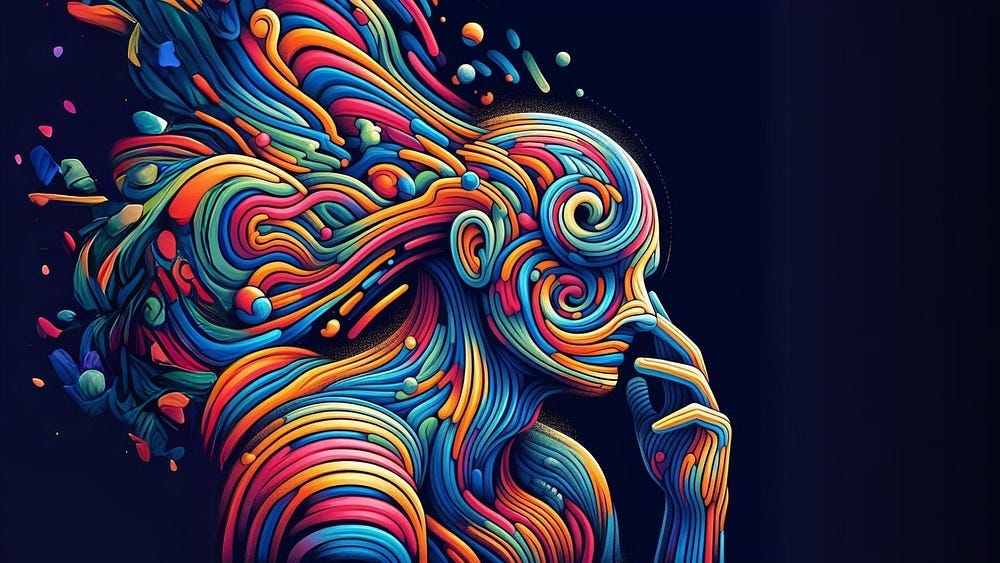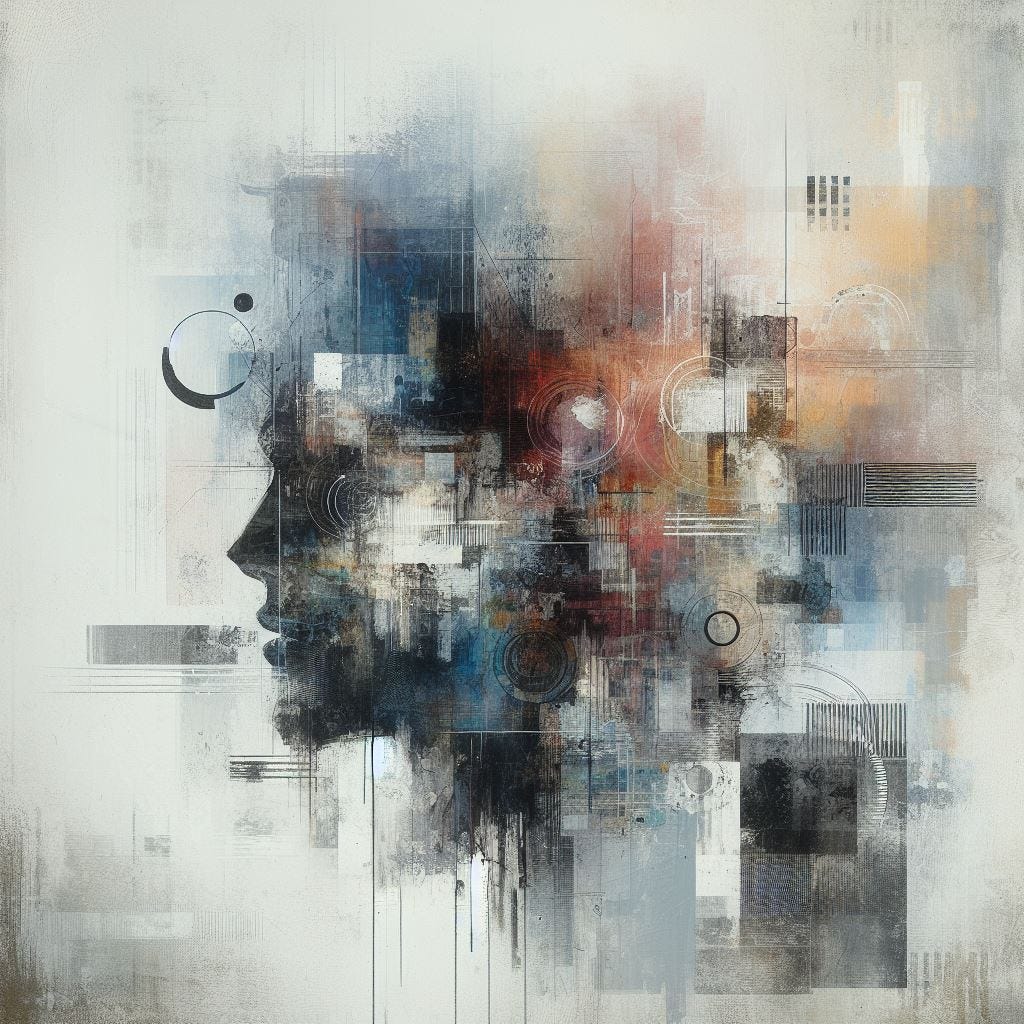The Best Skill I’ve Learned is to Forget
Let go of what you know; instead, learn to live.
Our entire life is filled with remembering and learning. We remember our family and friends, the skills we learned in school, and the do’s and don'ts of life. It’s mandatory to remember the laws of our country and state, how to eat with our mouths closed, and what clothes to wear in any situation.
But as we age, forgetting is more valuable.
When I was young, I needed to learn how to walk. You might think everyone learns to walk, but my legs aren’t exactly normal. It took a few years of physical therapy and some leg braces until I could walk. To this day, running, while I can technically call it running, is something I don’t prefer.
I had to learn to speak correctly, too. The same condition that affected my legs at birth had a side effect of changing the twelfth cranial nerve- it’s the nerve that controls the middle muscle of your tongue, which, for me, is paralyzed. Don’t worry. The other two muscles on the side of my tongue adapted and mostly made up for it. Although, I’m still asked “where my accent is from.” To which I simply reply, “Texas.”
My skin has a condition called eczema and it’s most noticeable on my knuckles and fingers, but in the last year it’s begun to appear on the back of my neck and under my knee. So, I must remember to keep my hands moisturized and not pick at the dry skin. With all of these conditions, birth defects, and situations, my family and I have learned the best medicine is to forget they existed. This might sound strange, but allow me to explain.
When I met my future in-laws for the first time, they were shocked to discover that not only was their only child pregnant but that the man responsible was 4'3" (~129cm). Fifteen years later, however, when I asked my mother-in-law to grab me a water glass off the top shelf, she had to remember why I couldn’t grab it myself. The same mindset also occurred when my wife forgetfully asked why I couldn’t just drive her car home. “Because my feet don’t reach the pedals on your car, dear,” I said with a pointed gaze. “Oh! Right,” she said, laughing and shaking her head as if to jar her brain back into functioning normally.
My friends growing up were similarly perplexed at how easily forgetting my physical limitations came to them. They would not remember that running didn’t come easily to me and asked why I hadn’t wanted to join the race. Or why I had never learned to ride a bicycle. Two very common tasks for 99% of the human race, but not for this one-percenter. I eventually would ask how could they forget I couldn’t do this task and their response was always the same. “I’m sorry. I just forgot. I’m around you so often that I don’t see you that way. I see you for you.”
The legendary figure Laotzi wrote about a man he called “the fool” or, in some translations, “the foolish student.” Laotzi was a legendary ancient Chinese philosopher, and founder of Taoism, who wrote Tao Te Ching around 2,500 years ago. Tao Te Ching, the seminal text of Taoism, is a short 81 chapters that describes the universe (Dao/Tao) and our place in it by giving readers examples of how to live in harmony with anyone and everything. My favorite passage where Laotzi wrote about the fool is chapter 41.
When wise students hear about the Dao,
they follow it carefully.
When ordinary students hear about the Dao,
they sometimes believe in it, and sometimes doubt.
When foolish students hear about the Dao,
they laugh at it out loud.
If they did not laugh at it, it would not be the Dao.
(Translated by Tom Chilcott, 2005)
In Taoism, it’s not enough to learn or to know about life and the universe — you have to experience it, too. What good is knowledge if you don’t put that knowledge into practice? Internalizing, living, and moving forward with a new purpose and direction is the key to the rest of my life.
My family and friends, at one point, learned who I was and what conditions I had. Then, as time passed, those conditions became secondary to who I was as a person. Everyone around me internalized them and forgot that I was different because they realized those physical limitations don’t matter when it comes to who I am inside.
We are all capable of forgetting in this way. When I write forgetting, I don’t mean it negatively to discredit or mistreat anyone. Instead, our collective goal should be practicing forgetting and simply living your life.
Laotzi, in chapter 48, expands on how forgetting knowledge can be beneficial.
“In the pursuit of knowledge,
every day something is added.
In the practice of the Tao, every day something is dropped.
Less and less do you need to force things,
until finally you arrive at non-action.”
(Translated by author)
Notice that as you begin to forget more, you arrive at a point called non-action. This is known as Wu-Wei — the ability to perform all things by doing nothing. Think of wu-wei as a professional athlete's ability to play a game as the best in the world, yet when asked how that’s possible, the athlete will simply say, “It comes naturally.” Perfect action arises out of effortless action, or, non-action.
In my life, I struggle a lot. Physical disability, emotional turmoil, three children, full and part-time jobs, and anxiety. Yet, I don’t worry or think about any perceived negatives. My journey is my own. Nothing can change this fact. If I had decided to complain about my body or emotions, I would never have come so far in my career or gained this blessed and joyous life.
There are no bad lives. There is only life. As an old poker expression says, you play the hand you’re dealt. This phrase means, in life, we can’t always choose what circumstances we find ourselves in. Sometimes, life happens, and we do our best to do the only thing we can — move forward.
Letting go of the worries you’re holding onto, setting down your baggage, and continuing your life will thrust you farther down your path than you ever thought possible. Forgetting has been a key to my life, how others think about and treat me, and it can be for you, too!
Stop reading about how you should be living, and instead, go live! Experience the sun on your face or the wind in your hair. Find people to fall in love with even if it ends too soon. Learn everything you can from books, films, and other people, but, more importantly, internalize what you’ve learned to the point that you forget those were lessons to start, and when you come around to learning them again, they’ll be brand new to you because you won’t be the same person. You’ll have moved forward and changed. Lessons are never the same twice because you’re never the same twice, either.
The act of forgetting isn’t about disregarding the lessons we’ve learned or ignoring our challenges. It’s about transcending our limitations — whether those limitations are physical, emotional, or societal. By releasing the need to define ourselves by our struggles, we open ourselves up to the potential Laotzi spoke of.
So, let’s embrace the art of forgetting. Let’s forge our paths unbound by what we think we should be and inspired by the limitless possibilities of who we are becoming.
Thank you so much for reading! If you enjoy my writing, please consider subscribing below or you can listen to my podcast on all of your favorite podcast networks.




